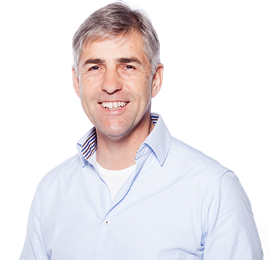Imagine waking up in a world where every child, from the moment they are born, is met not just with food and shelter, but with listening. Where their emotions are not silenced, but named with kindness. A world where “What’s wrong with you?” is replaced by “What happened to you?” and “What do you need?”
From early childhood, people learn to notice their inner worlds — how fear feels in the chest, how anger rises like a wave, and how breathing and naming it changes everything. Emotional literacy is not a side subject — it’s the foundation of learning. Schools are sanctuaries of trust, not competition. Teachers are not authority figures towering over students — they are guest-hosts, guides, offering the tools to navigate complexity with compassion.
Conflict still exists — as it always will in any vibrant, diverse society — but it’s met without fear. People understand that difference is not a threat, but a mirror; a chance to grow, not to win. Conflict is no longer what it meant in the past. When disagreements arise, people gather in circles — in homes, in schools, in workplaces — to speak and be heard. Accountability is sacred, but so is regret and community healing.
Citizens grow up knowing they are not owners of the Earth, but guests and guesthosts. This is not a metaphor — it is embedded in how they build, grow, move, eat. Cities are designed not around speed, but around rhythm — the rhythm of trees, rivers, community. No one is “left behind,” because to let one person suffer is to damage the whole. Reciprocity is not charity; it’s normal, natural. Everyone gives, and everyone receives.
Borders still exist, but they are not walls. They are cultural thresholds — respected, visited, learned from. Global citizenship is not in tension with local roots. You can love your land, your stories, your people — without needing an enemy to define you.
Leadership has transformed, too. Leaders are guides, chosen not for charisma or dominance, but for their depth of listening, their emotional clarity, their proven ability to hold tension without creating harm. Power is not a ladder — it is a web of responsibility.
Nature is not “protected” from us — it is part of us. Rivers are respected for the water they bring. Trees are planted as part of community rituals. Children grow gardens in school, not as a hobby, but as part of learning how to care for the systems that sustain them.
The media, art, and education all reinforce one underlying truth:
We belong to each other.
We are enough.
We are capable of growing up — together.
And perhaps the most beautiful part: even in this world, people still stumble. They may argue, feel jealousy, grief, rage and frustration. But they are not ashamed of it. Because they know how to begin again. Because beginning again is what they have been taught.
This World Is Not Fiction
Pieces of this world already exist — in Indigenous cultures, in trauma-informed classrooms, in circle practices, in community gardens, in movements of peace and solidarity around the globe. The future is not waiting for us. It is quietly remembering itself through us, whenever we choose compassion over reaction, courage over control, and care over conquest.
The future is not a destination, but a movement.
What is one small thing you can do today — to listen, to ask, to plant, to slow down — that brings this world a little closer?
Who will you share this with?
Govert van Ginkel
This article is written by Govert van Ginkel. Govert specializes in Nonviolent and Effective Communication and is active in this field as a trainer, speaker, coach, and mediator. More information about Govert can be found here. The current training offer can be found here
Introduction-evening Nonviolent and Effective Communication
Are you curious about Nonviolent and Effective Communication but still wondering what it could do for you? Join us at the introduction evening and learn more!
more infoInspiration
Register for the ‘Nonviolent and Effective Communication Inspiration newsletter’
In-company training and accredited
company training
For companies, Govert offers customized training to suit your specific needs. Govert also provides accredited (in-company) training for mediators, interpreters, and other professionals.

















